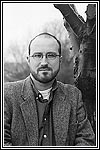 |
Vol 0, No 18 26 January 1999 |
| |
 C Z E C H R E P U B L I C :
C Z E C H R E P U B L I C :
Undemocratic Elites Andrew Stroehlein One of the most depressing texts in the Czech press in recent weeks was the commentary attacking direct presidential elections written by Zdenek Jicinsky, Social Democratic Member of Parliament, in Pravo on 4 January. Once again, we are witness to another example of Czech elite reasoning: the people are generally foolish, so we elites must limit their power. (cesky preklad v Britskych listech ZDE) It is not the general point Jicinsky is making that bothers me. There are strong arguments both for and against direct presidential elections, and I really do not have an opinion on this particular matter either way. What bothers me - shocks me really - is the manner of one of Jicinsky's arguments. Jicinsky argues against a popular presidential election, stating that "If there were a direct election, then it would be necessary to expect that the election campaign would bring with it all the elements of this dejected culture which has thus far been the outstanding feature of Czech public life." (Kdyby byla prima volba, pak je nutno pocitat, ze i predvolebni kampan ponese vsechny znaky te poklesle kultury, jiz se az dosud vyznacoval nas verejny zivot.) It is hard to believe that a member of an elected Parliament can use such an argument. Jicinsky is essentially saying that elections and election campaigns are unseemly affairs which only serve to demonstrate society's miserable level of political culture. We shouldn't have elections, this reasoning goes, because they unpleasantly show some aspects of society which Jicinsky would rather not see. But elections are not any kind of necessary evil in society: they are the fundamental aspect of creating responsible government. (It seems unreal to even have to explain this.) Elections are not something the elites allow the masses every now and then: they are the key mechanism by which the masses control politicians, who are public servants, after all. It would appear that Jicinsky misses this crucial point in his commentary. Unfortunately, Jicinsky's argument seems to be all too common among Czech elites: the masses are uncultured, uneducated and unprepared to make wise choices. This logic will be familiar to those who followed the debate on a NATO referendum in which several commentators argued that the people should not be given a vote, because they might vote wrong. The average Czech in the street is considered by the elites to be either generally too ignorant or specifically "too traumatized by Communism" to be trusted with power in elections and referenda. Let's be clear: it is not undemocratic to reject direct presidential elections and opt for a president nominated by Parliament. It is worryingly undemocratic, however, to say that elections are unsightly events best conducted as infrequently as possible so the nation doesn't embarrass itself. After all, if election campaigns are such ghastly affairs, why then should we have elections at all? Andrew Stroehlein, 26 January 1999
|
|
![]()
Copyright (c) 1999 - Central Europe Review and Internet servis, a.s.
All Rights Reserved